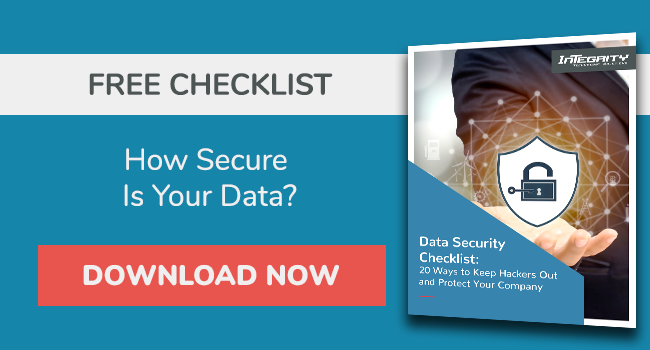Blog
Why Software Updates Are Important For Security

“Bug fixes and performance improvements.”
Chances are you’ve seen a line similar to this recently.
That’s because most developers include something like this in their notes when releasing a software update.
It’s true that most apps include bug fixes and performance improvements.
Most often, as users, we may notice these updates in the form of new colors or an updated layout—at least, that’s what people thought they’d see when they saw a SolarWinds update waiting for them in early 2020.
Instead, more than 18,000 SolarWinds customers downloaded a malicious update that exposed critical information, allowing the malware to spread to even more private organizations and governmental agencies in what became a major global supply chain attack.
SolarWinds can be associated with a number of types of cyberattacks, such as malware, phishing, and vulnerability exploitation.
It’s good to note that vulnerability exploitations are quite rare—Verizon’s 2021 Data Breach Investigations Report found that they accounted for just 3 percent, or about 4,000, of data breaches worldwide.
But, they still exist.
And SolarWinds highlights how devastating they can be if they happen.
Let’s take a look at why software and security updates are important, what happens if they’re not installed, and how to make sure your software is up to date for better protection against cyberattacks.
What Is A Security Update?
A security update patches security holes and fixes bugs for a variety of things:
- Operating systems, such as Windows, MacOS, iOS, Android, Microsoft, and more.
- Software applications, such as web browsers, email clients, and common business applications.
- The devices on which those applications are used, such as desktop and laptop computers, tablets, mobile devices, printers, and more.
Updates are important to perform as they help patch a software’s vulnerabilities, making it harder for hackers to exploit them.
These patches help protect data, such as documents and personal information, that’s valuable to cybercriminals.
Plus, software updates clean up outdated applications from your devices.
What Happens If You Don’t Update Your Software
Ignoring security updates can potentially expose you and your company to cyberattacks, especially if used in concert with phishing or ransomware.
Criminals steal data to sell it on the dark web.
Without additional precautions—such as strong passwords, multifactor authentication, and more—that stolen information could result in personal and professional losses of time, money, and even identity.
Performing security updates often results in protecting yourself, your coworkers, and your organization as a whole.
How Do You Update Your Software?
Before installing a security update, always seek guidance from your IT team for their recommendation on whether to do so.
Otherwise, we have the following general recommendations for most security updates:
- Update when your device prompts you. Most devices will notify you that an update is available. Click or tap that notification to learn more and install the update so you don’t forget about it later.
- Enable automatic updates. Some settings allow for updates to be installed automatically.
- Update your device during off hours. Updates can take awhile, depending on their nature. That’s why it’s usually best to update an operating system, for example, during non-working hours since the device is typically locked down during the update period.
- Check out common guides online. If you’re unsure whether your device or software is up to date, you can always search out specific directions online for how you can verify. Each operating system and software application has its own way of checking that is beyond the scope of this article.
Again, you should consult with your IT team on the way they prefer you update company devices and software—they may even be able to do it for you.
Keeping your software and your devices updated can have enormous benefits for your organization.
Integrity is a managed security service provider, specializing in compliance and working with regulated businesses and organizations. Integrity features a fully staffed help desk that provides immediate response and support, a dedicated information security team, and a C-suite of experienced technology advisement resources ready to help your business.


Leave a Reply